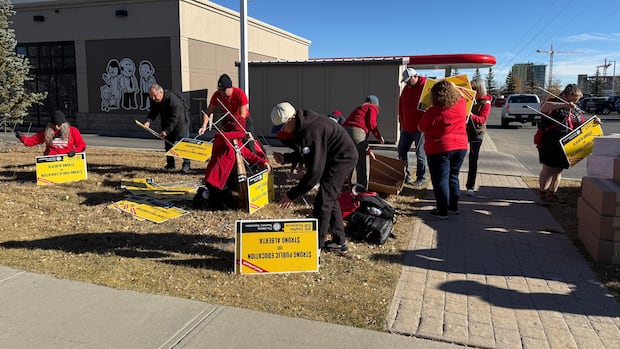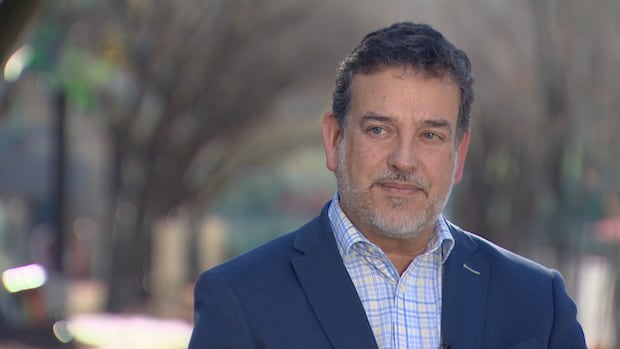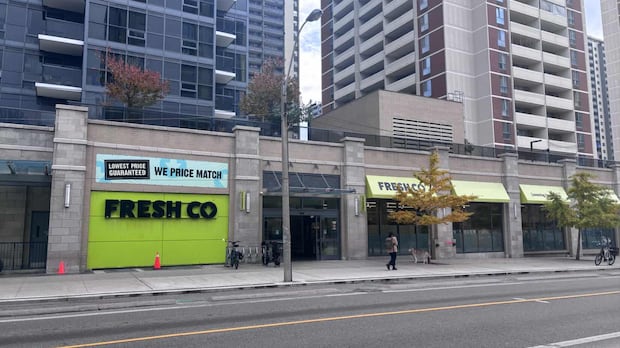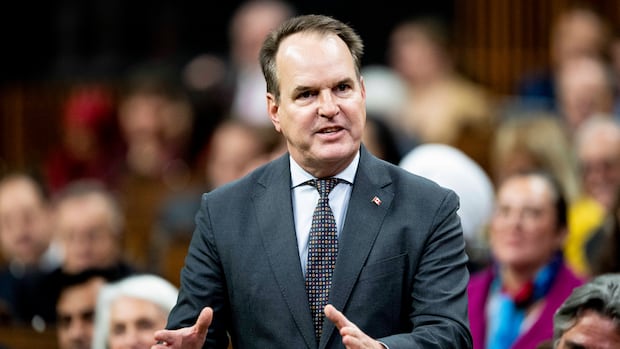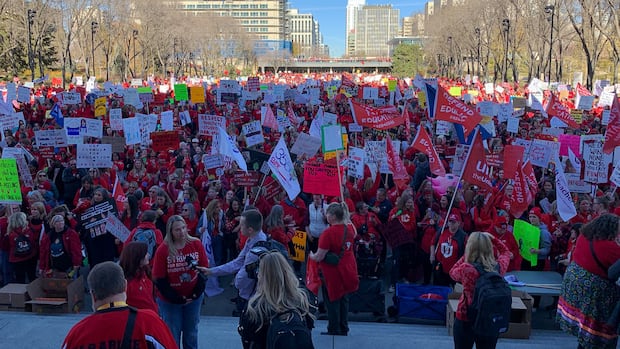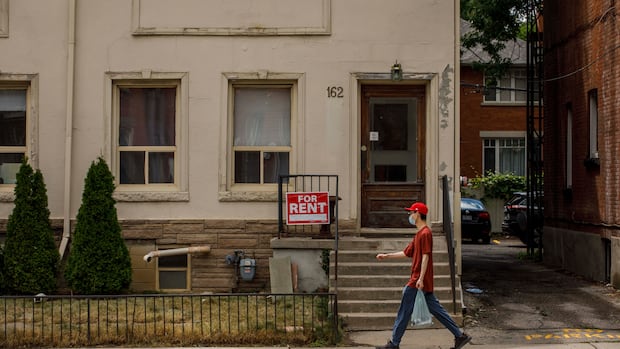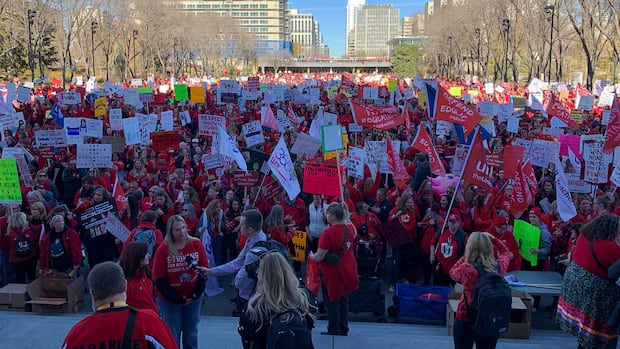Union leaders across Alberta are warning of a strong response should the provincial government invoke the notwithstanding clause when it tables legislation Monday, aiming to force teachers back to work.
The Alberta Federation of Labour (AFL) is an umbrella group representing unions such as the Alberta Union of Provincial Employees and the Public Service Alliance of Canada. In all, it represents more than 350,000 workers.
The group held an emergency meeting Friday to discuss the province’s upcoming back-to-work legislation.
“We came out of that meeting with a clear message for the premier. And that message was, ‘Don't you dare press the notwithstanding clause button,'” said AFL president Gil McGowan.
The notwithstanding clause is a legal tool written into the Canadian Charter of Rights and Freedoms. Also known as Section 33, the clause allows provincial and territorial governments to override court challenges to its legislation.
Though the province hasn’t said it will use the clause, the Federation worries it will be included in Bill 2, the back-to-work legislation expected to be tabled in Alberta’s legislature Monday.
That bill would effectively force teachers back to work for the first time since they began striking on Oct. 6.
“If they do, we stand ready to respond,” said McGowan in an interview. “An unprecedented action is going to lead to an unprecedented response from our labour movement.”
McGowan said exactly what that action will look like is unclear. Union leaders discussed the possibility of a general strike during Friday’s meeting, but McGowan said the federation will wait to respond until it sees what’s in Bill 2.
Province hasn’t said it will use clausePremier Danielle Smith’s government has yet to use the notwithstanding clause. Internal memos suggest it will invoke it, however, to enforce controversial laws affecting transgender students.
On her weekend radio show, Your Province, Your Premier, Danielle Smith responded to the potential threat of a provincewide strike, should her government invoke the clause in Bill 2.
“We have to make sure that we’re balancing the rights of tax payers, balancing the rights of parents and balancing the rights of students. I hope it doesn't end up going to a broader labour action,” she said.
"We're very pleased that we've been able to get more than half of our [collective] agreements signed. That's what I think we should do. Let's focus on the issues for each of the bargaining units and try to solve them."
In a news conference Friday, Alberta Teachers’ Association president Jason Schilling said any use of the notwithstanding clause in this dispute would have a ripple effect on other unions.
Schilling said that the clause, if used, restricts rights.
“That should be a concern for Albertans beyond the scope of the teacher strike and the legislative settlement that could be coming,” he said.
“We need to make sure that we're watching this very carefully and be responsive to it as necessary.”
Using the clause during education strikeIn 2022, Ontario Premier Doug Ford’s government tried to ban an education workers’ strike by passing a bill to prevent strike action and impose a contract. The bill included use of the notwithstanding clause.
In response, CUPE workers walked off the job, forcing the closure of hundreds of schools. Ontario then repealed the law entirely.
McGowan used the Ontario labour action as an example of how important it is to avoid the clause — and his fears of what could happen if Alberta does indeed invoke it.
“It's not just bigger than the teachers’ strike. It has the potential to be bigger than Alberta,” he said.
“If we have a provincial government that uses the notwithstanding clause to crush the rights of workers, especially the right to strike, then other governments — especially conservative governments, will see that as a precedent that they will follow.”


